UNECE Regional Forum for Sustainable Development, 2019 edition
Article published on 10-04-2019Regional Forums are valuable intergovernmental mechanisms and multi-stakeholder platforms for SDG solutions, convened by the 5 United Nations Regional Commissions. Focusing on practical value-added and peer learning, they create a regional space to share policy solutions, best practices and challenges in SDG implementation and help identify major regional and subregional trends. Besides Governments and international organizations, other participating stakeholders include civil society, academia and the private sector.
Regional Forums feed both into national and global processes. Discussions at the Forums foster mutual learning and help countries accelerate national progress in implementing the 2030 Agenda. The summary of each Regional Forum provides the region’s official input for the High-level Political Forum (HLPF), which will be held in two sessions in 2019, for the first 4-yearly review of all 17 SDGs. The HLPF is the main United Nations platform on sustainable development and has a central role in the follow-up and review of the 2030 Agenda at the global level. The Forum adopts intergovernmentally negotiated political declarations.
The United Nations Economic Commission for Europe (UNECE), one of the 5 United Nations Regional Commissions, covering the countries of Europe, North America, Central Asia and Western Asia (Israel), convened in Geneva on 21-22 March the 2019 edition of the UNECE Regional Forum.
During the High-level Policy Segment, country representatives discussed how Voluntary National Reviews (VNRs) can serve as drivers of SDG implementation. The 2030 Agenda encourages member States to review their national experiences in implementing the SDGs, including successes, challenges and lessons learned.
Closely aligned with the issues addressed at the High-level Political Forum (HLPF), the peer learning round tables focused on the implementation of 5 SDGs under in-depth review at the 2019 HLPF: SDG 4 (quality education), SDG 8 (decent work and economic growth), SDG 10 (reduced inequalities), SDG 13 (climate action) and SDG 16 (peace, justice and strong institutions). Government representatives and other stakeholders shared concrete case studies from their national experience, proposed solutions to identified problems and discussed how best practices can be adopted by peers.
3 case studies were selected to be presented during the Peer Learning Round Table “Lifelong learning and inclusive education", one of them Romania's. The National Commission of Romania for UNESCO presented a study case, prepared together with UNICEF Romania, on policy measures deriving from Romania's most recent OECD revision of the assessment and evaluation in pre-university education, which could be replicated by other Governments. Find out details about this Round Table and our presentation here. As well, the compilation of all case studies, where you may find the extended version of ours, is available here.
Participants to the Forum also had the opportunity to engage in dialogues on pressing questions: How can we use technology, digitalization and artificial intelligence to accelerate SDG progress? How can we make better use of data and statistics to measure progress in SDGs?
Alongside the formal agenda, several pre-meetings channeled and coordinated the inputs of civil society, youth and volunteers to the Regional Forum. 18 side events offered further space for interactive discussions on current challenges, including the “Ensuring Inclusive and Equitable Quality Education and Promoting Lifelong Learning Opportunities” Side Event, co-organized by us together with UNESCO Regional Bureau in Europe and UN Women. It was the first time the National Commission of Romania for UNESCO co-organized, together with UN agencies, an event within a UN Forum! Our event targeted Sustainable Development Goals 4 and 5 - Quality Education and Gender Equality - and explored the interconnections between them and the key action areas to improve gender equality both in and through education. We were honoured by the presence to the event of the Permanent Mission of Romania to UN Geneva and international organizations based in Switzerland, respectively Mr. Traian Filip - Minister Plenipotentiary, Deputy Permanent Representative and Ms. Elena Dumitru - Minister Plenipotentiary. Find out more about our event here.
Romania's delegate to this Forum from the Commission was Iris Constantin, NCR UNESCO expert.
See the full program of the Regional Forum and details on the participants, key note statements, photos, news & more here.
Photos: UN Women & UNECE/Pierre Albouy

















































